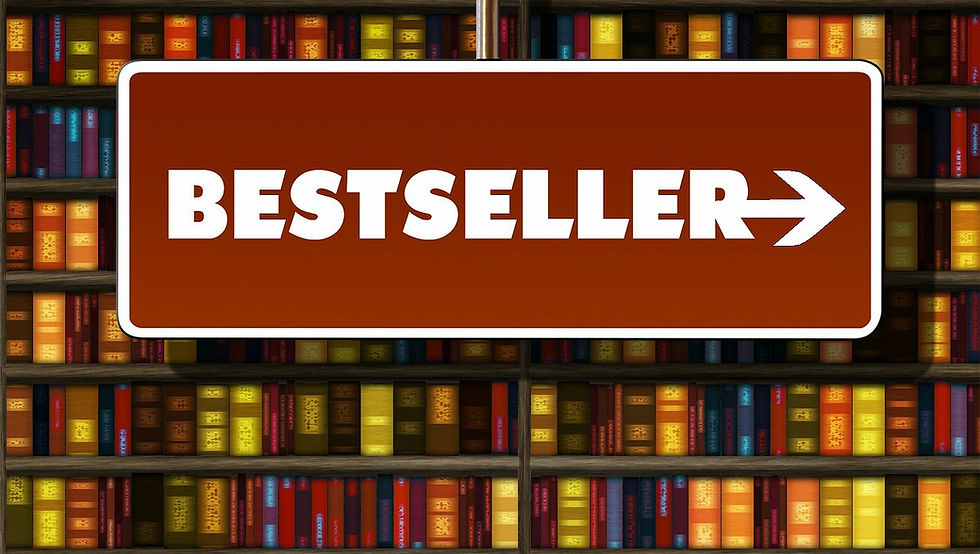5 Reasons Why Comparative Titles Are Essential to Querying
- Brittany J. Vincent

- Jan 28, 2019
- 3 min read
Listing comparative titles for your book is a vital part of the querying process. Whether you’re submitting to an agent or an editor, comparatives titles are too often underestimated or misrepresented.
“No one has written anything like this before” or “my manuscript is the next Harry Potter” may seem like a smart pitch to differentiate one’s writing in a query letter or book proposal, but it actually communicates that you either don’t know your chosen genre or didn’t take the time to properly research it. The way a book is marketed is just as important as the quality of content.
There are numerous reasons why comparative titles are necessary and will increase the success of selling your manuscript, but I’ve narrowed it down to five main benefits:
1.) They demonstrate that a profitable market already exists.
In general, people are drawn to what is familiar. They need a point of reference before they can move forward with a concept. The same goes for agents and editors. Trends go in and out like the waves to and from a shore, but it’s important to identify that there is a consistently hungry audience for your particular work with room to grow.
2.) They clearly define your target audience and potential buyers.
A publisher wants to produce quality content, but it’s also a business just like any other. It has a bottom line and wants to make a profit. Even if you’re self-publishing, part of your goal is to sell lots of books to not only get your content out there but to also financially support your writing career. Comparative titles give direction.
Knowing your target audience and potential buyers’ wants and needs ensures your book is correctly categorized and marketed in the right consumer channels. Strategic categorizing and marketing will affect everything from the tone of a book’s jacket copy to its placement on bookshelves or in online searches. These factors will eventually translate into sales.
3.) They acknowledge storytelling similarities but also highlight your creative twist.
Nowadays, there is so much content available in various forms that it’s impossible to say that your work is one hundred percent original. What is original, though, is your interpretation of a theme, concept, and characters. Choosing two or three similar titles is a useful way to give an agent or editor an idea of how your work expands on a genre and offers a unique, marketable twist that will attract readers.
4.) They help you discover which agents and publishers specialize in your genre and who to pitch.
Just like you, agents and editors specialize in certain genres. If you know who represents or publishes related books in your chosen genre, then you’re already one step closer to your goal. Most literary agencies feature a list of their clients on their websites. Another alternative is to read the acknowledgment sections in comparative titles. There you’ll see the authors thanking their agents and editors, and you'll gain solid leads on who to query.
5.) They emphasize the primary themes of your book and strategically position it in the agents' and publishers’ minds.
Agents and acquisition editors read a lot of manuscripts daily. There are simply too many submissions to keep track of them all. That’s why it’s imperative you and your manuscript immediately grab their attention.
Part of your hook is positioning. Choosing dynamic and interesting comparative titles that represent the core concept of your manuscript while emphasizing your individuality as a writer will give you an edge. You want to spark interest that keeps agents reading and gives the impression your story could be “the next big thing.” They might not remember the title of your manuscript or your name right away, but an intriguing hook will stand out in their minds.
With comparative titles, do your research. Make a list of books or even TV shows and movies with similar themes. Make sure you’re not listing just extremely famous household names (e.g., J.K. Rowling, E.L. James, Stephen King, James Patterson, etc.) but also choosing from a wider pool of authors who are successful and respected within your genre. Ask for advice from family, friends, and fellow writers. See what stands out and enhances your overall pitch.










Comments